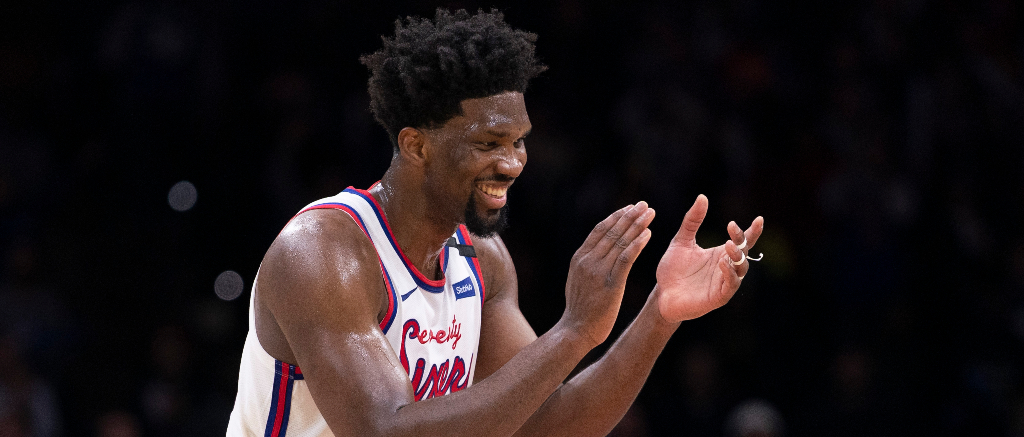
When the Philadelphia 76ers gave Joel Embiid a max extension after his rookie deal, they included some protections and outs in case his injury history caused him to miss significant time and derailed his career.
Happily for Embiid and the Sixers, the All-Star center has blossomed into one of the league’s most dominant forces and, while he’s had some minor injuries here and there, he has not seen a reoccurrence of the foot injury that caused him to miss his first two years in the league and has played in 63 and 64 games the past two years, prior to 44 appearances in this shortened season. To guarantee the final three years of his deal, with $95 million at stake, Embiid needed to play 1,650 minutes to hit the final threshold in his contract.
When the league shut down, Embiid had played just over 1,300 minutes, well on his way to meeting that goal, but with the hiatus he would’ve fallen short — even with the eight-game restart. However, according to ESPN’s Adrian Wojnarowski, the league and players union have agreed to prorate bonuses and incentives based on the number of games played prior to the March 11 shut down, allowing Embiid to fully guarantee his deal, and others to grab bonuses they were on pace to hit.
One agreement finalized in recent days includes the NBA prorating performance bonuses and incentives using March 11 as the end date of the regular season — eliminating the eight additional seeding games in Orlando as part of the formula, sources said.
For Philadelphia 76ers All-Star Joel Embiid, it means meeting the minutes-played criteria needed to fully guarantee the final three years and nearly $95 million on his $148 million maximum contract, sources said.
It’s a big deal for players to get those incentives prorated and locked in based on a 60-some odd game schedule, because there’s real money on the line for a lot of players. Embiid’s contract is the biggest number, but there were other players tracking towards hundreds of thousands of dollars of bonuses that would’ve fallen just short had the league not come to this agreement. It’s a wise business move on the part of owners as well, who can use that as a concession they were willing to make when dealing with financial strains that could come in the near future due to a shuffling of revenue from the lack of fans to close the season and, possibly, some loss in TV revenue.
